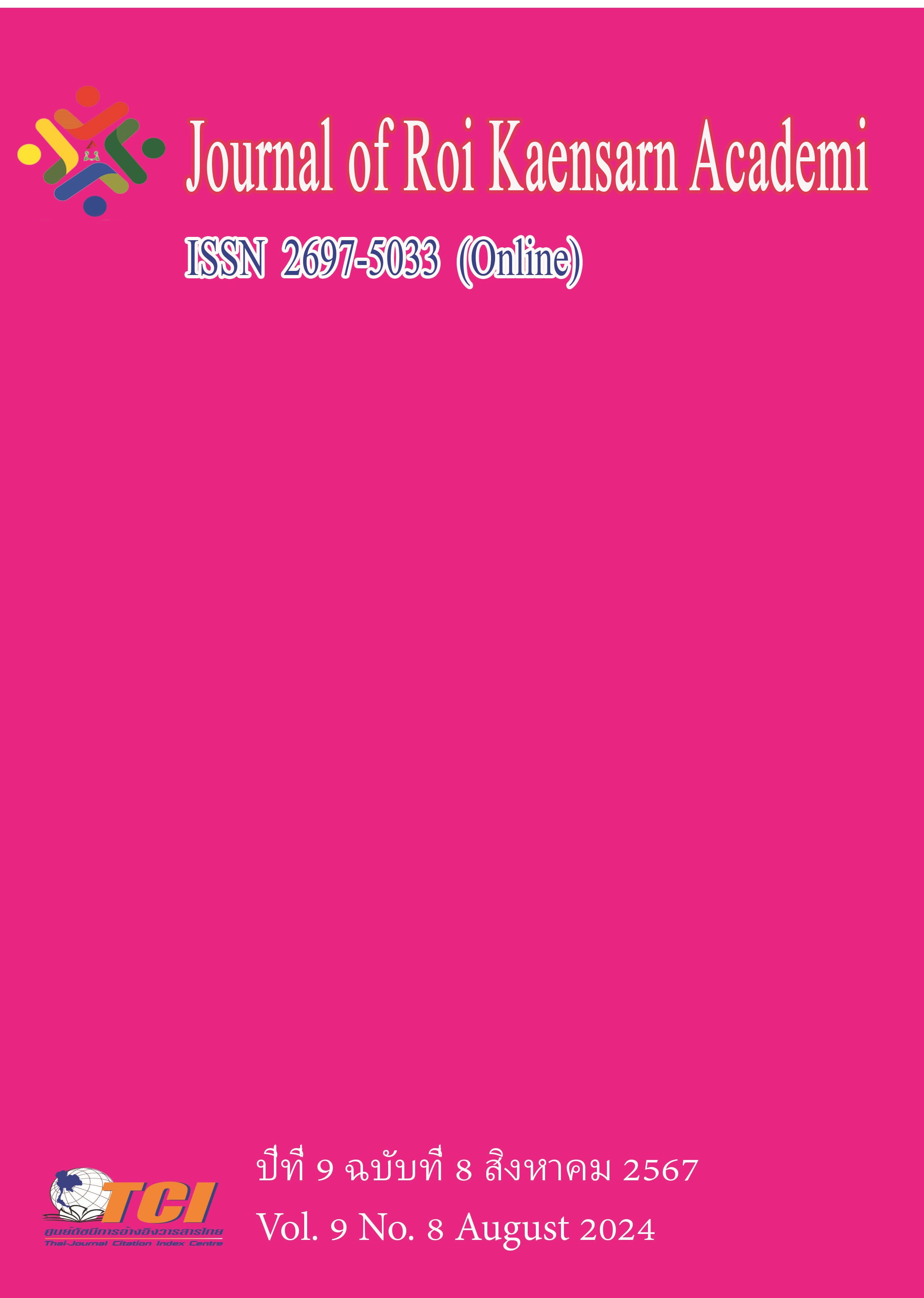Survey Analysis and Countermeasures Research on the Proportion of Sexual Minorities and Mental Health Status Quo of College Students in Guangxi Universities
Main Article Content
บทคัดย่อ
The purpose of this research is 1) To explore the proportion of sexual minorities and the overall mental health status of college students in Guangxi universities, 2) To provide a reference basis for good mental health services for this group.
The research methodology involved selecting eleven undergraduate colleges and universities in the Guangxi Zhuang Autonomous Region through convenience sampling. An online questionnaire survey was conducted, investigating students' general socio-demographic characteristics, sexual orientation, gender identity, and mental health status using the SCL-90 questionnaire. The study employed chi-square tests and t-tests to compare relevant variables among different groups. Network analysis identified core symptoms of mental health issues among sexual minority college students.
The research included 1,801 subjects, with sexual minorities comprising 26.56% of the sample. College sexual minorities scored significantly higher than non-sexual minorities across various factors, including stigmatization, compulsion, interpersonal sensitivity, depression, anxiety, hostility, terror, paranoia, psychoticism, and sleep (P < 0.05). Additionally, the prevalence of suicidal ideation within the past six months was significantly higher among sexual minorities (P < 0.05), with anxiety identified as a central symptom in the mental health network of college sexual minorities.
In conclusion, sexual minorities in Guangxi universities represent a significant portion of students with poor mental health. Colleges and universities can enhance mental health support by strengthening school psychological counseling services, improving the multicultural competence of faculty, and enhancing psychosexual guidance education for students."
Article Details
เอกสารอ้างอิง
Chen, Z., Lu, Z., & Mei, Y. (2000). A study of the obsessive symptoms and their relationship with depressive symptoms in depression disorder [A study of the obsessive symptoms and their relationship with depressive symptoms in depression disorder]. Chinese Journal of Nervous and Mental Diseases. 26 (4), 218-221.
Huang Kaixin, Y. T. H. B. (2023). Analysis of related factors in outpatient adolescent depression.PSY. 23 (1), 147-149.
Liu, R. T. M. B. (2012). Suicidal Ideation and Self-Harm in Lesbian, Gay, Bisexual, and Transgender Youth. American Journal of Preventive Medicine. 42 (3), 221- 228.
Oswalt, S. B. W. T. (2011). Sexual Orientation and Differences in Mental Health, Stress, and Academic Performance in a National Sample of U.S. College Students. Journal of Homosexuality. 58 (9), 1255-1280.
Ren Yi, L. G. G. T. (2023). Correlation analysis of anxiety, depression and somatic symptoms in healthcare workers during the outbreak. Psy. 18 (11), 56-63.
Tian Baowei, H. X. (2016). The Effects of Perceived Stress, Perceived Discrimination and Social Support on the Mental Health of Gay College Students. Chinese Journal of Special Education. 12 (1), 91-96.
Yan, L., Lingham, Z., Qiang, S., Yao, C., & Huiqing, L. (2017). Awareness and attitudes towards gender sexual minority among psychiatrists and psychologists. The Chinese Journal of Human Sexuality. 26 (1), 133-139.
Yi, H. J., Shin, Y., Min, Y., Jeong, J., Jung, J., & Kang, Y. (2022). Perception and Experience of Sexual and Gender Minority Korean Youth in School Counseling. International Journal for the Advancement of Counselling. 45 (2), 189-209.
Yu-di, Z., & Fang, F. U. (2019). Investigation on Mental Health Status of Sexual Minority College Students Based on National Samples of China [Investigation on Mental Health Status of Sexual Minority College Students Based on National Samples of China]. Chinese Journal of Clinical Psychology. 27 (5), 997-1002.

